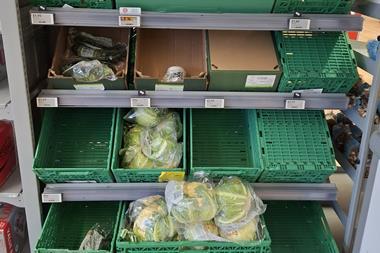“We care about the environment, we do. We just can’t afford to pay for it.” This is the conclusion of shoppers in Asda’s latest survey, which found although half of people are prepared to make big lifestyle changes to reduce their carbon footprint, price remains the single biggest obstacle in them doing so.
This (unsurprising) result cuts to the heart of one of the food industry’s greatest challenges when it comes to going green. Yes, supermarkets can promise to halve their environmental impacts by 2030, as they announced on Saturday, but it will come at a cost. So who picks up the bill? Shoppers, it seems, are reluctant to do so.
Prices do not reflect food’s actual cost on the environment and human health, but if this is to change, the era of cheap food as we know it must end. Of this, supermarkets are all too aware. Yet they face the equal and opposite force of staying affordable for all customers – many of whom are struggling as it is to make ends meet.
The industry can do its bit. As Susan Thomas, Asda’s senior director of commercial sustainability points out, much can be done through the industry working together to make greener products more affordable.
But if we’re to get anywhere near a sustainable food future, the government will have to cough up. Whether it’s redirecting subsidies to incentivise sustainable production, or financial support to help citizens make more sustainable decisions – i.e. tackling poverty – change will not happen without Whitehall’s support.
On this front, the food industry can also play its part. The politics of food is aligned so cheap food is the norm. Pity the politician who stands at the next election saying food prices are too low – but that’s where we must go. And while the supermarkets and trade bodies cannot solve the issue on their own, they can show strong leadership by lobbying for change.




















No comments yet